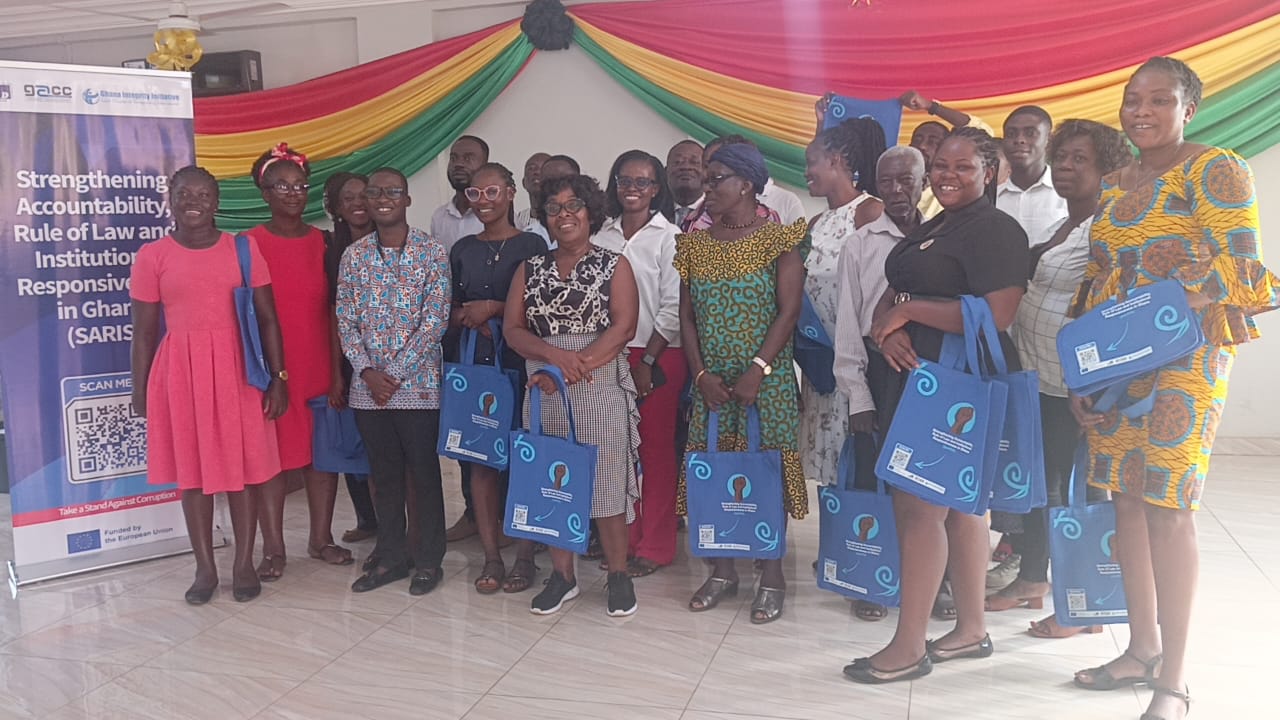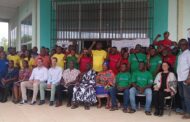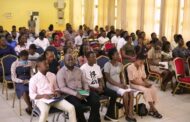The Ghana Integrity Initiative (GII), a local chapter of Transparency International Ghana, has held a capacity training workshop for citizen groups in the Akuapem North Municipality of the Eastern Region.
The training aimed to equip participants on the Public Financial Management Act, 2016 (PFMA) to combat corruption-related incidents in their communities through the collaboration of Ghana Center for Democratic Development (CDD-Ghana), Ghana Anti-Corruption Coalition (GACC), and Ghana Integrity Initiative (GII) with funding support from the European Union.
Jacob Tetteh Ahuno, Programs and Research Officer of the Ghana Integrity Initiative (GII) emphasized the importance of collective actions in the fight against corruption in the country.
Mr. Tetteh Ahuno indicated that the Transparency International Ghana focuses to mobilize civil society organizations to join the fight against corruption at all levels in Ghana.
Briefing the press after a two-day training at Akuapem North Municipal Assembly Hall, Mr. Tetteh Ahuno articulated they aim to create a corruption-free society where Ghanaians act accountably and transparently.
Mr. Tetteh Ahuno expressed that citizen groups are expected to undertake sensitization programs in schools, churches, mosques, and market squares to support the anti-corruption fight in Ghana.
As part of an effort to create a corruption-free atmosphere in Ghana, Mr. Tetteh Ahuno charged participants to raise public awareness and hold individuals accountable for corrupt practices.
The theme for the workshop was centered on: “Strengthening Accountability, Rule of Law and Institutional Responsiveness in Ghana.’’
The workshop brought about representatives from the Local Council of Churches, staff from Akuapem North Municipal Assembly, Persons with disabilities (PWDs), National Commission for Civic Education (NCCE), Commission on Human Rights and Administrative Justice (CHRAJ), Ghana Hairdressers and Beauticians Association (GHABA), media practitioners, Traditional Authorities and many other citizens organizations.
They were taken through various topics, including the causes and consequences of corruption, the role of citizens in promoting transparency and accountability, and strategies for reporting corruption incidents. The training also provided a platform for participants to share their experiences and best practices in fighting corruption.
Participants commended GII for organizing the training, stating that it had increased their awareness and capacity to contribute to anti-corruption efforts in their communities.
Source:Mybrytfmonline.com/Nhyiraba Nhyiraba Solomon




















































